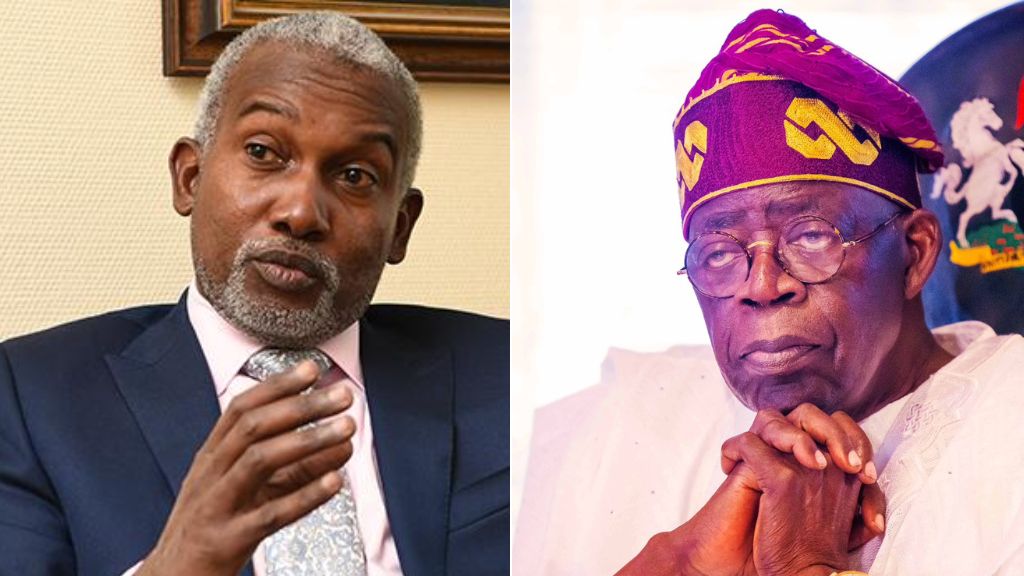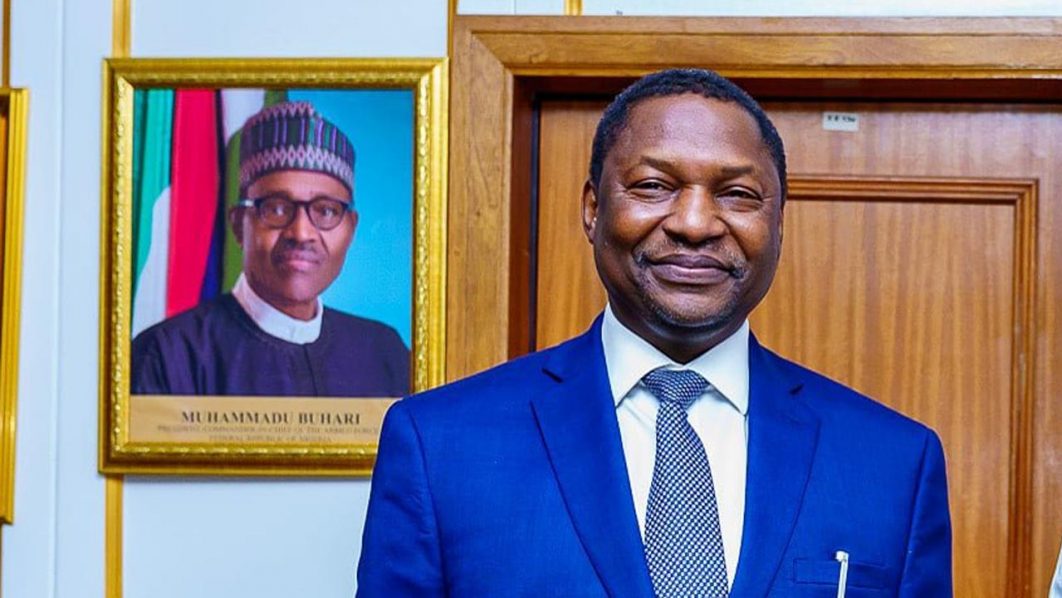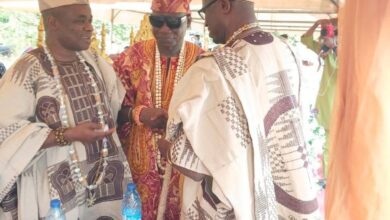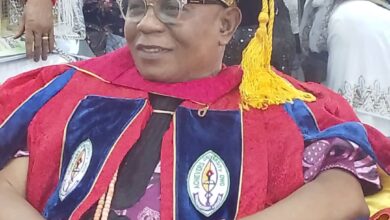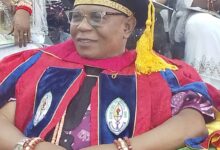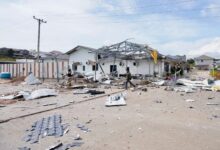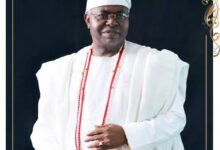Revealed! Facts about how IBB, Obasanjo “killed” Nigeria Airways, as Buhari revisits need for national carrier
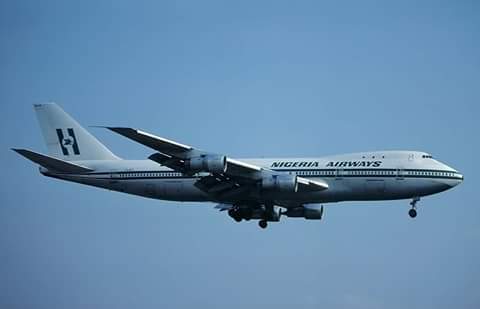
*The Captain Joji magic
*Obasanjo killed Airways, Buhari reviving it – Jack Obinyan
…plus existing suggestion for better carrier by Chris Aligbe
“When a former Nigerian Airways Director of Engineering, Agom became the new MD, he decided that everything Captain Joji did, he would torpedo. That was how the entire process of privatisation was torpedoed. He sent the technical team from Sabena and Swissair packing. Everything that had been done he aborted, ran back to the ministry and the ministry was happy that a first class parastatal had again come under its control. That was the end.”

Like Mr. Femi Adesina said some people in the country never wanted the positive achievements of the President Muhammadu Buhari Administration known as, according to him they promote doom all the times about the government, watchers of events have begun to truly check the facts on ground by themselves and are bringing them out one after another.
One of the facts, The DEFENDER gathered, is the commitment of Buhari’s government to revisiting and floating the national carrier “killed” by the Olusegun Obasanjo administration of between 1999 – 2007.
The Federal Government on Tuesday, through Mr. Chidi Izuwah, the acting Director-General of the Infrastructure Concession Regulatory Commission (ICRC) gave the assurance in an interview with the News Agency of Nigeria (NAN) in Abuja, in which it restated its commitment to float a new national carrier by December 2018.
He said that President Muhammadu Buhari has given the National carrier Committee a timeline which must be met stating that a task force was created which would work intensively for the next six months.
Mr Izuwah, who is also a member of the Ministerial Committee on the Establishment of a National Carrier said that it would be private sector driven leading to the concession of the airports. He said ICRC would look at the business case.
“The committee has met and set up a plan. What the plan is, is to make sure that there is a business plan, which is the first thing if you want the private sector to participate.
“You must let them know that if they invest in this business, they will make profit, our plan is to attract investors and request for qualification process, which is part of the ICRC guidelines for procurement.
“Where we identify pre-qualified bidders, who can now bid, which will be a very competitive process all around the world, It’s a very pressurised timeline I must say, but the committee is committed to be able to do that.
“Because the National carrier is very crucial for our economy and in addition the entire aviation infrastructure, what we are doing is that, we just certified the Aviation Leasing Company, it will make access to aircraft easier for our airlines.”
He said that the national carrier would create huge jobs, noting that the aviation sector has been creating jobs for other countries instead of Nigerians stating that the carrier is a pride of every nation.
Mr Izuwah, however, said that government is willing to partner with the private sector to drive the economy.
President Muhammadu Buhari had on Monday November 20 last year disclosed, while receiving the president of the International Civil Aviation Organization (ICAO), Muyiwa Aliu, in audience at the State House, Abuja that was under tremendous pressure from many patriotic Nigerians desirous of establishing a national airline.
President Buhari said he equally supported a national airline for both patriotic and economic reasons as the country had enough trained citizens including pilots and engineers.
The President, however, emphasised that Nigerians needed to know how the country lost the one it had before, the defunct Nigeria Airways.
IBB, Obasanjo finally nailed Nigeria Airways coffin
From the word ‘go’ in 2015, President Muhammadu Buhari had indicated his desire to establish a national carrier. The desire climaxed with what he said on Monday November 20, 2017 to the ICAO delegation that visited that he was under pressure to really establish the national carrier for his people and nation’s economy.
But, in his statement, the President was keen about making he and Nigerians identify what the cause of the death of Nigeria Airways was.
It is as a result of that The DEFENDER has gone extra mile to find out from the words of former General Manager, Corporate Affairs, of the defunct Nigeria Airways, Mr. Chris Aligbe, which he put to down in an interview with The NATION Newspaper published on August 17, 2015 through which he bore his mind on what he claimed were the causes of the death of the once robust national carrier.
Before talking about the causes, however, Aligbe expressed dismay that things haven’t got better as those that liquidated Nigeria Airways thought.
He said, “I served with the Nigeria Airways for about 13 years and left as General Manager, Corporate Affairs, that was in 2002.” That was during the administration of Olusegun Obasanjo and he continued, “Between December 16 and 20, 2002, five of us resigned from the company. When we were leaving, we saw that those who were in authority, running the affairs of the airline, were determined to further their personal interest rather than the national interest.
“I think they were doing it to finally bring it down. I did tell them on my resignation that I could no longer stay in a place where all policy actions of the ministry were intended for the demise of the airline. It is unfortunate that the airline was liquidated at a time its assets were three times the value of its liability.
“If the airline belonged to private business people, they would not have liquidated it, but they had their own intentions. I agree with the President that it is necessary that we set up a national carrier but it should not be in the model of the liquidated Nigeria Airways.”
On what he would suggest to proponents of new national carrier to adopt in order to avoid the mistakes of the past, the former GM said: “The kind of airline we should have is one that the government does not own a controlling equity or manage. The government equity is for the airline to have a sovereign cover. The government should just have a limited equity of 20 to 25 per cent, while 50 per cent of the equity should go to the public and you give 20 to 25 per cent to foreign investors. The government should not invest in the airline. Its equity should be sweat – equity. We need it urgently.”
He said, “They should put in place the concessioning of airports; transparent and professional concession to the advantage of our country. That can be done. Secondly, NCAA’s autonomy should be sacrosanct. Nobody should be allowed to toy with the autonomy of NCAA’” He said.
Chris Aligbe gave the details of the story of that eventually led to the death of the Nigeria Airways with special mention of Captain Mohammed Joji’s effort to revive it and which was working well until the administration again torpedoed the Joji’s strategy and nailed the national carrier finally.
He said: “Nigeria Airways was a fully owned parastatal by the government and so the government virtually handled everything; management and board appointments were all by the government. When we talk about owner-manager syndrome, government also is part of that syndrome because the minister will determine who becomes the MD. Sometimes he determines which route you have to fly.
“The Minister will determine whether you are going to increase fares or not. One minister, Graham Douglas, sacked the entire board and management of the airline for increasing fares without his permission. There was a minister who cancelled contract agreements we have overseas on ticket sales that eventually cost the airline close to five million pounds. He just cancelled it and along with the management who advised him on that, appointed a new sales agent in UK, without looking at the agreement with the earlier travel agent, CES Travel. Under three months, the minister was out of the office but the problem he created cost the airline five million pounds in out-of- court settlement even with the assistance of the then Minister of Justice Mr. Akpamgbo.
“Also, one of the greatest killers of the Nigeria Airways was the devaluation of the naira during the Babangida administration. Once the naira was devalued, Nigeria Airways debts in dollars skyrocketed in terms the naira needed to pay. That devaluation set the spiral on and at the same time same government said Nigerian Airways will no longer receive subvention but should rather fund itself.
“The debt of the Nigerian Airways in dollars remained stable but in terms of naira, it was so much that the airline could not handle it. We could not pay our debts through the International Air Travel Association (IATA) Clearing House where everything was being processed. We could no longer pay and there was some level of irresponsibility also from Nigerian Airways’ station managers overseas.
“Anything they did, up to buying furniture, they put it through the Clearing House, which is meant for airline operation. They used it for other expenditures thus increasing our indebtedness. When we could not pay, IATA by 1997/1998 expelled Nigerian Airways from the Clearing House. Nigeria Airways was still a member of IATA but was expelled from the Clearing House.
“Now, that became a big problem because what it means is that you could no longer fly any passenger beyond your destination. Immediately they expelled us, no airline would have a relationship with us we came to a point-to-point operator which was very devastating as it shrank our market share and dwindled revenue further. Any airline that is a point–to–point operator cannot really have the good market share that will sustain its operation. That’s what happened to us.
“We now started having some aircraft on the ground. Sometimes, we had to cannibalise one aircraft to keep another flying because we no longer had the money to do maintenance. But the only good thing was that we had checks and balances in terms of technical standards. If the engineer didn’t maintain the aircraft well, a pilot would walk into the aircraft, check it and come down and say sorry I’m not taking this flight. So, we had those standards then which were not in other airlines.
“Babagida now put in place a policy to commercialise and privatise the airline. That was when he set up the Technical Committee on Privatisation and Commercialisation (TCPC) led by the late Hanza Zayyad, who was the chairman. It was part of the Structural Adjustment Programme that Babagida came up with which was good, but the fact of the matter is, at the time this was happening, privatisation of airlines was a new concept. It was only one airline, British Airways that was successfully doing it, but hadn’t completed it. British Airways services were poor and the British Prime Minister, Margaret Thatcher, was determined to make a change. She carried out the first privatisation of an airline successfully in the world. Nigerian Airways was to be the second one globally under the Babagida administration. It was at the threshold of taking off when Babagia himself killed the policy.
The Captain Joji magic
“Captain Mohammed Joji had come in as Managing Director (MD) after the Presidential Task Force that was to prepare the airline for commercialisation left. He came in as MD and took the privatisation exercise with passion working with TCPC. We had gone a long way on that when, suddenly, everything went awry again as at the time, we had evolved the strategy of privatisation. The strategy was to leave Nigeria Airways as domestic and regional operator while from Nigeria Airways a new international airline called Air Nigeria was to emerge.
“That was the first time ever that Air Nigeria came up. This was 1992/1993 and we had got two airlines, Swissair and Sabena that were prepared to be part of this privatisation as core partners and eventually core investors. Air Nigeria was to use four aircraft from Nigeria airways, the DC10s and A310s series that we had and they would pay Nigeria Airways $1million monthly as lease rental which it will now use to expand its domestic and regional operations and become a very formidable operator. This was the strategy.
“When a former Nigerian Airways Director of Engineering, Agom became the new MD, he decided that everything Captain Joji did, he would torpedo. That was how the entire process of privatisation was torpedoed. He sent the technical team from Sabena and Swissair packing. Everything that had been done he aborted, ran back to the ministry and the ministry was happy that a first class parastatal had again come under its control. That was the end.
“Agom stayed two years and was removed. Another person came, Group Captain Peter Gana, a serving Airforce officer. There was no change as more of our aircraft, DC10 and B737 were seized. The last DC10 that we bought was seized overseas and we couldn’t retrieve it. We had no money to pay, so we were operating with whatever we had.
“Our fortunes from then never rose again until when, in 1998, Jani Ibrahim was appointed MD. He was a business man, not an airline man. He was coming from the oil industry. He studied the situation and concluded that to survive, we would need a joint venture. So, he discussed with British Airways and went into a joint venture with them. British Airways generously deployed a 747, which painted it in the colour of Nigerian Airways. They were operating it on behalf of the JV and they gave us 100 seats on every flight free. We didn’t have to pay anything because it was our route but we could sell 100 seats, and use the revenue to build up Nigeria Airways and we found that every month, we were earning N100 million. We could pay salaries and pension while we were using revenue from all other operations to keep the airline going and pay some debts. Jani was proceeding to extend that joint venture to the US when Obasanjo became President of the country. The rest is now history today.
Obasanjo killed Airways, Buhari reviving it – Social Media activist
In the meantime, reacting to antagonistic attitude of former President Olusegun Obasanjo supported by former Military President Ibrahim Badamasi Babangida asking President Muhammadu Buhari not to seek re-election in 2019 because of what they term his failure, some Nigerians have taken to the social to register their condemnation of the duo of former rulers.
One of them is Jack-Obinyan-Buhari, who posted three photographs of Nigeria Airways planes on his Facebook wall and called on Nigerians to tell them how it died.
He said, “OBJ killed it, and I wake you guys up with fantastic news this morning; Baba Zahra has given Baba Iyabo a ‘world class’ upper cut as FAAN announces that the pride of Nigeria commences operations, December this year…”


